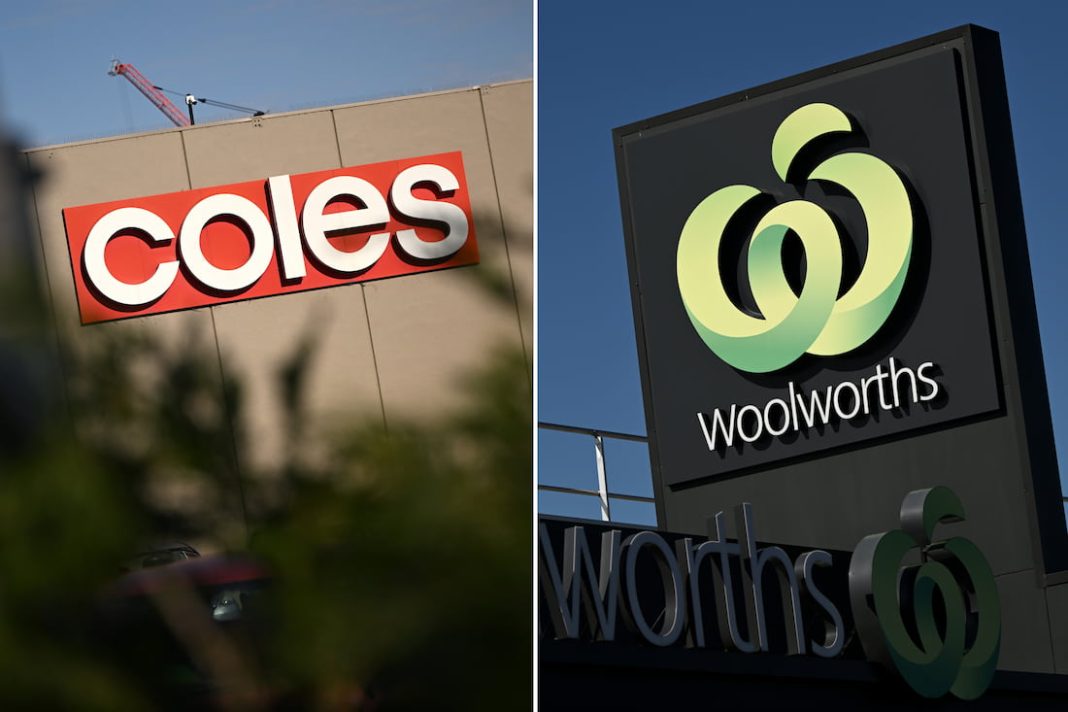Supermarket giants Coles and Woolworths deny allegations they tricked customers with fake discounts, claiming the legal cases against them are misconceived.
Lawyers for both supermarkets appeared in the Federal Court on Wednesday after the Australian Competition and Consumer Commission launched separate legal proceedings in September.
The watchdog claims the companies violated consumer law by misleading shoppers on hundreds of popular supermarket items with their “Down Down” and “Prices Dropped” campaigns.
It’s alleged both supermarkets used similar ploys to increase prices of hundreds of products before dropping them as part of their respective campaigns.
The products – including dairy, pet food and personal care items – sold for less than the inflated prices but still more than the regular price that applied before the price spike.
Cameron Moore SC, representing Woolworths, told the court the company had not initiated the temporary spikes in prices.
Both supermarkets claim they were following the requests of suppliers, who pushed for the increase due to their rising costs.
“The suggestion is that Woolworths initiated temporary price spikes and that’s not correct factually,” Mr Moore said.
“We say factually, the ACCC’s case is misconceived.”
John Sheahan KC, representing Coles, said the case was not as simple as alleged by the ACCC and any outcome could have significant implications for the whole industry.
Coles and Woolworths have until November 29 to file a written response to the ACCC’s allegations.
The parties will then return to the Federal Court in December for another case management hearing.
The dominance of the supermarkets and their pricing has come under much scrutiny during the cost-of-living crisis.
Coles and Woolworths make up 67 per cent of the supermarket sector and it took the next largest chain, Aldi, 20 years to get to nine per cent of the market share.
An ACCC report in September – released two days after it launched the legal action against Coles and Woolworths – highlighted customer concerns on soaring prices at the checkout, a lack of competition and a loss of trust about specials or discount schemes.
A survey by the Australia Institute earlier in October found most people believe supermarkets are responsible for a great deal or some of the blame for financial pressures.
The federal government has accused the chains of hoarding land to stop competitors from using locations while also announcing a stronger pricing code in a bid to increase transparency around “shrinkflation” – when products get smaller in size but prices stay the same or increase.



